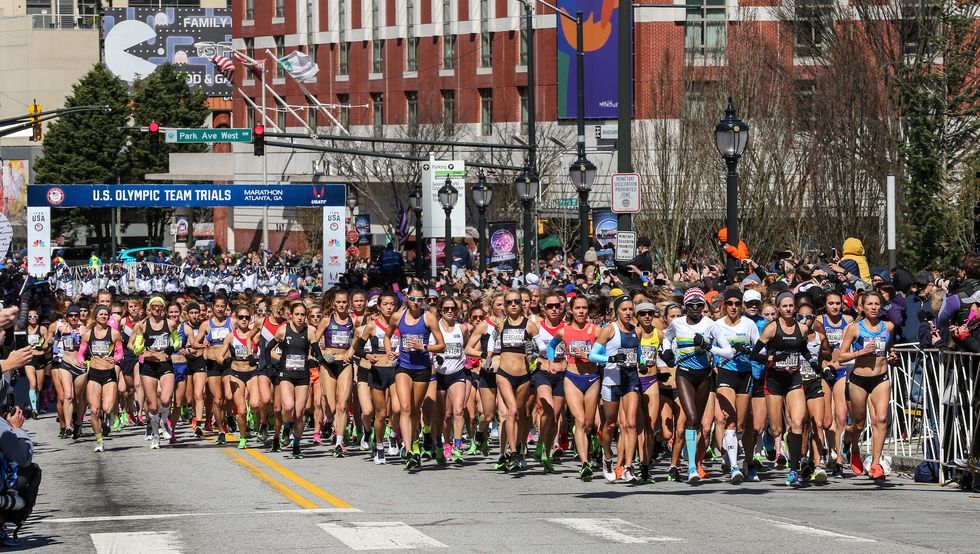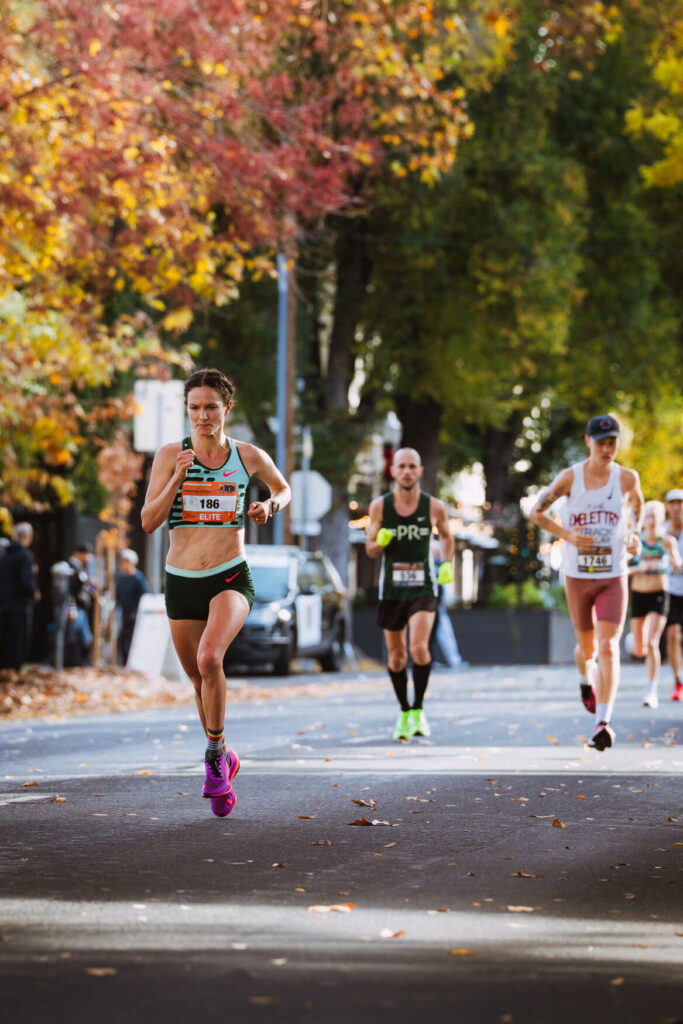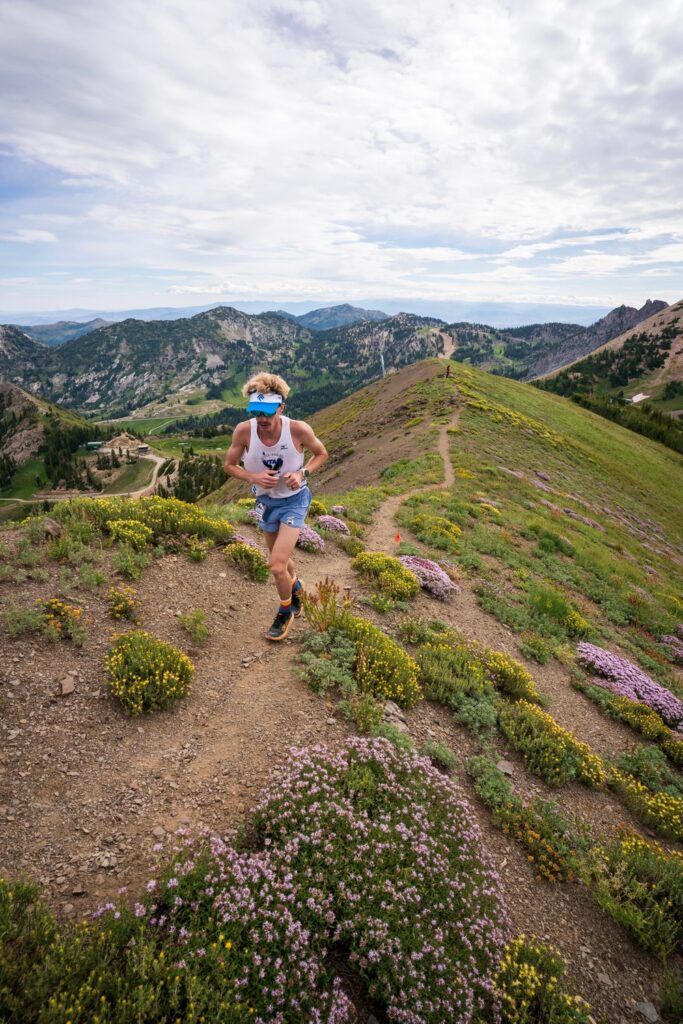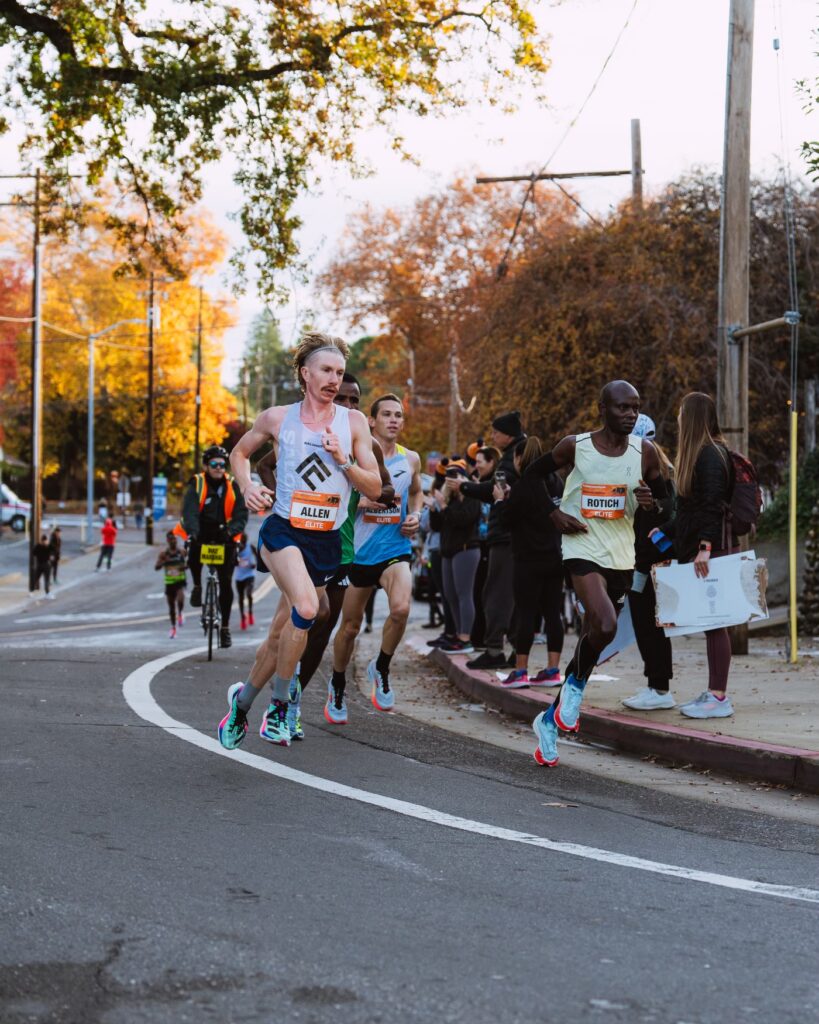In less than 5 weeks, America’s best marathoners will toe the startline of the 2024 U.S. Olympic Marathon Team Trials in Orlando, Florida, competing for the opportunity of a lifetime: a chance to represent Team USA at the 2024 Olympic Games this summer in Paris. Without diving too deep into the nuances of team selection (that would require another entire article in and of itself!) and for simplicity’s sake, the top 3 men and women with the Olympic marathon time standard across the finish line on February 3rd will make the Olympic team.
However, save for the 26.2 mile distance, the U.S. Olympic Marathon Team Trials is no ordinary marathon where anyone can register or put their name in the lottery for a place. Similar to the Boston Marathon, but without any regard for age, all athletes have to hit strict qualification times just to earn the right to line up in Orlando; in runners’ talk, achieving an OTQ requires athletes to run under the Olympic Trials Qualification (OTQ) time standards of 2:18 and 2:37 for men and women respectively.

Trail runners at the trials
Amongst the Olympic Trials qualifiers are a number of trail runners:
Women
- Rachel Drake 2:35:28 California International Marathon Sacramento, CA 12/3/2023 (Not racing Olympic Trials)
- Peyton Thomas 2:35:50 California International Marathon Sacramento, CA 12/3/2023
- Kathryn Fluehr 2:35:56 Chicago Marathon Chicago, IL 10/8/2023
- Flannery Davis Love 2:36:52 Bakline’s McKirdy Micro Marathon Valley Cottage, NY 10/13/2023
- Polina Hodnette 2:36:54 California International Marathon Sacramento, CA 12/4/2022
- Grayson Murphy 1:10:34 Mill Town Half Marathon Everett, WA 4/2/2023 (Not racing Olympic Trials)

Men
- CJ Albertson 2:11:09 California International Marathon Sacramento, 12/3/2023
- Chad Hall 2:14:13 Boston Marathon Boston, MA 4/17/2023
- Christian Allen 2:15:01 California International Marathon Sacramento, CA 12/3/2023
- Jonathan Aziz 2:15:31 Grandma’s Marathon Duluth, MN 6/18/2022
- Zachary Ornelas 2:16:05 California International Marathon Sacramento, CA 12/4/2022
- Sergio Reyes 2:16:14 Bakline’s McKirdy Micro Marathon Valley Cottage, NY 10/13/2023
Apologies in advance, I almost guarantee I have missed many current and former phenomenal trail athletes with the cool cross-over nature that the trail world invites.
Can Trail running make you a better road runner?
While trail running does require its own unique set of skills and specific training, it shouldn’t come as a surprise that America’s top trail runners also rank highly on the road. Three big factors contributing to trail runners’ success in marathons include differences in both mental and physical strength, as well as fueling practices.
Mental strength
Trail runners are tough AF, need I say more? Okay, okay, let’s dig into that.
Pushing your body to its limits, regardless of race distance or terrain, is no joke. And this is no slight to roadies, but running quickly on the trail necessitates a unique set of mental and physical skills to cope with the longer distances and durations, trail technicalities, ever-changing terrain and weather conditions, navigation, fatigue, fueling, self-talk, and much more. Compared to the roads, the trails are full of uncertainty and unpredictability, requiring athletes to more regularly be in problem-solving mode in real time. The longer you go, the more time spent on the trails, the greater the number of challenges to be overcome, equipping trail runners with a kit of transferable tools, both mental and physical, for navigating adversity on the run.
And there is science to support this: a 2023 study looking at the mindsets of Portuguese trail runners reported a positive correlation between mental toughness and resiliency with athletic performance. Researchers attribute trail runners’ increase in mental toughness and resilience with the need to constantly contend with variable conditions and unpleasant situations, requiring them to develop greater self-awareness and problem-solving strategies.
When trail runners take to the roads, a large number of the aforementioned uncertainties are removed: navigation, changing terrain, trail technicalities, and more, reducing the perceived challenge ahead of them. Furthermore, used to metering out their energy over multiple hours without relying on great real time data, trail and ultra runners are masters of pacing with great interoceptive awareness. Better able to dial in and trust “marathon effort”, trail runners excel at marathon pacing and the execution of even or negative splits.
Physical strength
Published in the Journal of Strength and Conditioning Research in 2023, researchers Pastor et al, scrutinized differences and similarities between elite road and trail runners. Amongst the subject pool of elite athletes, trail runners demonstrated significantly greater dynamic lower body strength than road runners, in spite of a lack of specific strength training sessions. Put simply, running on the trails appeared to develop strength superior to that which can be achieved purely running on the road and lifting in the gym.
Running speed, or acceleration, is a product of force and mass: the more force a runner can exert on the ground, the faster they will run. Not only are stronger runners faster runners, strength may play an even greater influence towards the end of races when athletes are fatigued. Trail runners’ greater strength could allow them to maintain better form and running economy late in races, increasing their durability and ability to withstand fatigue compared to road runners.

Fueling practices
With even sub-ultra trail races taking the top finishers hours, fueling during races is a non-negotiable, thus practice in training is a must. Contrast that with an elite athlete racing on the road, more familiar with 10kms and half marathons rarely exceeding 80 minutes. While in-race nutrition and hydration is recommended, it is not nearly as performance-limiting. As such, it is no surprise that when comparing the fueling habits of elite trail and road runners, trail runners report far higher fuel intakes during training runs than road runners.
It’s not uncommon for road runners to delay in-workout nutrition until training exceeds 90 minutes in duration, about 13 and 15 miles for women and men respectively. Considering the structure of a typical marathon build, athletes may only end up fueling during 8 to 10 long runs prior to race day. In contrast, by nature of their longer race durations and the training required for success, it’s easy to understand why trail runners are more far practiced at fueling on the run. Additionally, research into the nutrition habits of trail runners report more frequent and concentrated fueling intakes: this suggests trail runners are consuming more energy, more frequently while running than road runners.
While practice may not make perfect, especially when the GI system is concerned, the more times an athlete takes on fuel during training, the higher the odds of avoiding nutrition-related GI distress and bonking on race day. Known as “training the gut”, researchers find that athletes’ who practice fueling on the run can significantly improve how they tolerate nutrition, increasing the rate of gastric emptying and energy absorption, and likely reducing the chances of performance-limiting energy crashes and GI problems. Therefore, athletes’ experienced with taking on nutrition while running have more highly trained guts, a factor associated with better endurance performance. As previously mentioned, trail runners typically practice fueling more often, better training their guts to process and utilize nutrition, setting them up for success on race day!
Looking ahead to the Olympic Trials
As we approach the 2024 U.S. Olympic Marathon Team Trials on February 3rd, we will be profiling the training and racing of two top trail runners with OTQs: Christian Allen and Rachel Drake.
The BYU cross country All-American runner, Allen, has been training toe-to-toe with America’s current number 1 and 2 marathoners Conner Mantz and Clayton Young. His 2022 and 2023 trail seasons saw him rarely finish off the podium, and with his sights set on making the Olympic Team, he’ll be hoping this trend continues in Orlando!

For accomplished ultra trail runner Rachel Drake, the 2023 California International Marathon (CIM) saw her nab her second successive OTQ. Drake went on to finish 59th out of 517 qualifiers in the 2020 U.S. Olympic Marathon Team Trials in Atlanta. However, this year Drake’s focus remains on the trails, opting to race Canyons 100-kilometer over the Olympic Trials in the hopes of snagging a golden ticket to the Western States 100-mile. So while Drake will not be lining up in Orlando, the 2023 OCC 6th place finisher and 2:35 marathoner has a lot to share on balancing elite trail and road running.
References
Gameiro, N., Rodrigues, F., Antunes, R., Matos, R., Amaro, N., Jacinto, M., & Monteiro, D. (2023). Mental Toughness and Resilience in Trail Runner’s Performance. Perceptual and Motor Skills, 130(3), 1202–1220. https://doi.org/10.1177/00315125231165819
Sabater Pastor, F., Besson, T., Berthet, M., Varesco, G., Kennouche, D., Dandrieux, P. E., Rossi, J., & Millet, G. Y. (2023). Elite Road vs. Trail Runners: Comparing Economy, Biomechanics, Strength, and Power. Journal of Strength and Conditioning Research, 37(1), 181–186. https://doi.org/10.1519/JSC.0000000000004226
Jiménez-Alfageme, R., Aguirre López, L., Mielgo-Ayuso, J., & Martínez Sanz, J. M. (2021). Análisis de la ingesta nutricional en corredores de montaña durante una prueba deportiva [Analysis of nutritional intake in trail runners during competition]. Nutricion Hospitalaria, 38(2), 321–327. https://doi.org/10.20960/nh.03388
Burke, L. M., Jeukendrup, A. E., Jones, A. M., & Mooses, M. (2019). Contemporary Nutrition Strategies to Optimize Performance in Distance Runners and Race Walkers. International Journal of Sport Nutrition and Exercise Metabolism, 29(2), 117–129. https://doi.org/10.1123/ijsnem.2019-0004
Jeukendrup A. E. (2017). Training the Gut for Athletes. Sports Medicine (Auckland, N.Z.), 47(Suppl 1), 101–110. https://doi.org/10.1007/s40279-017-0690-6
